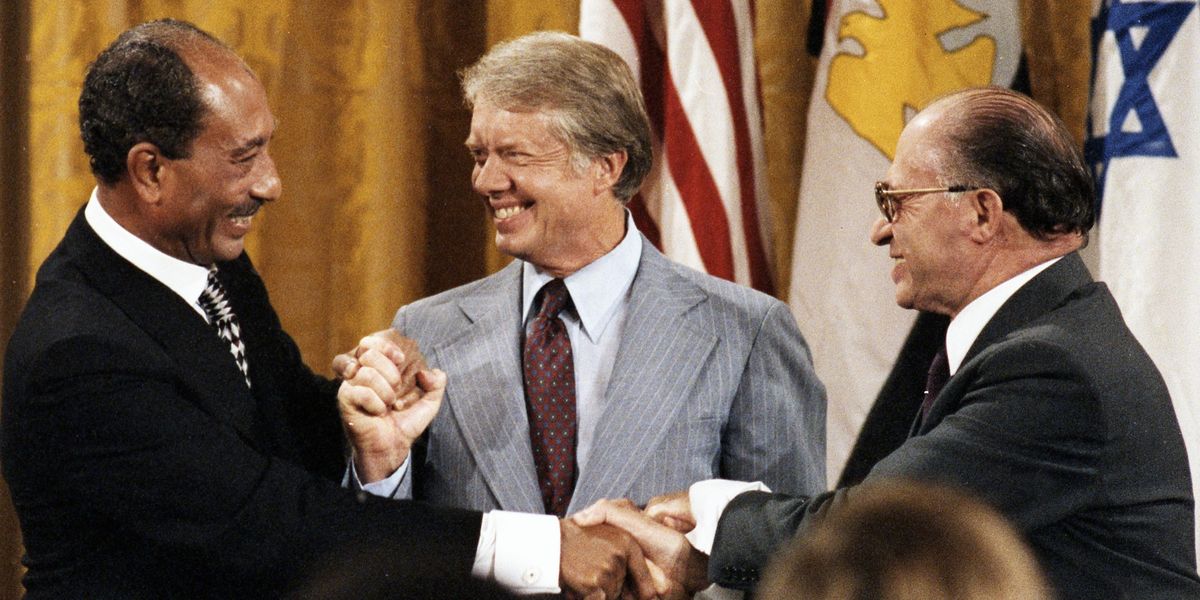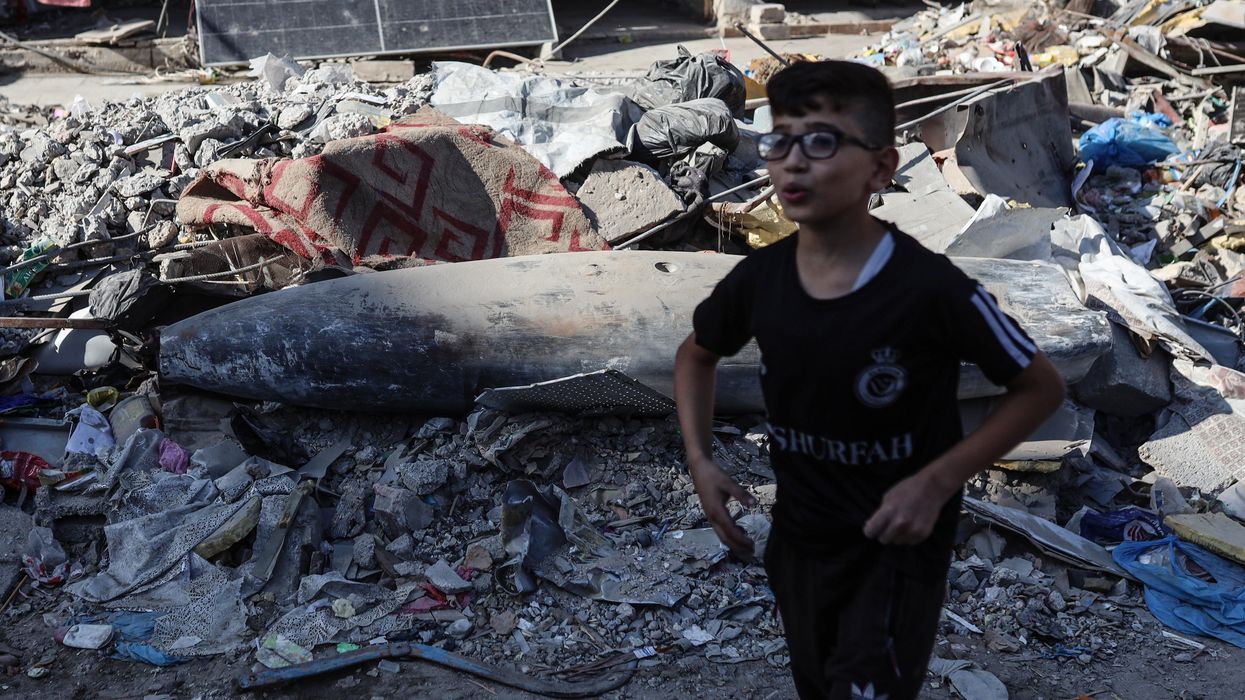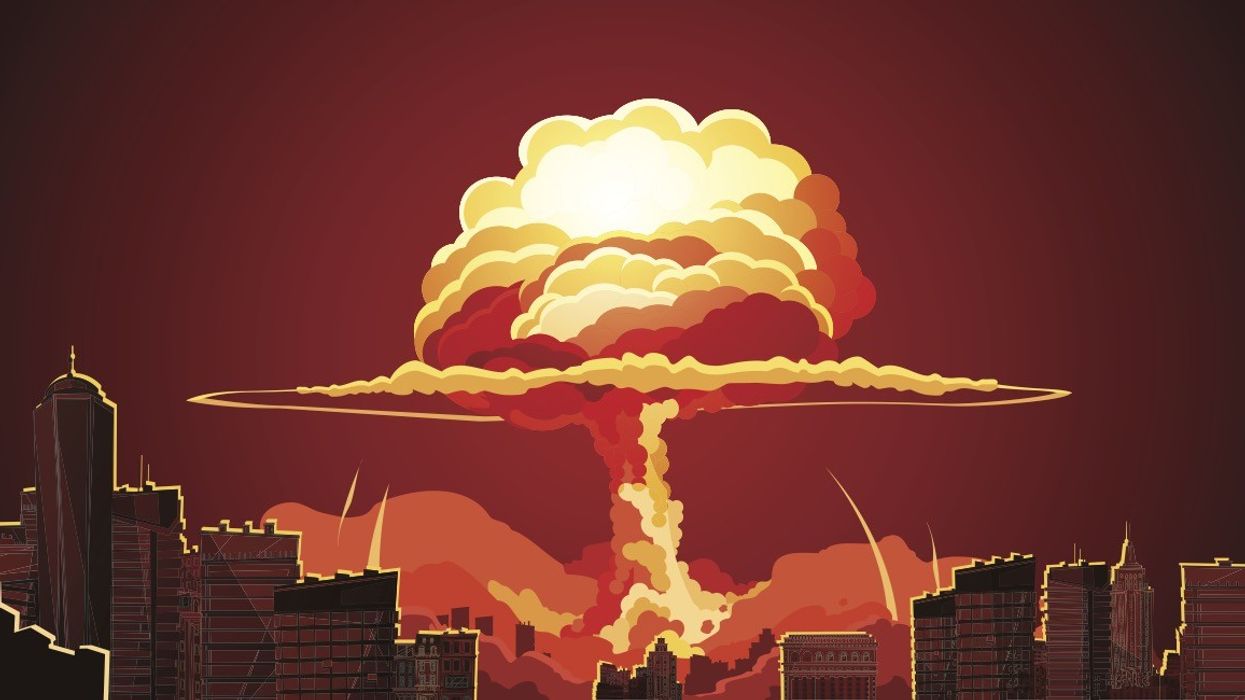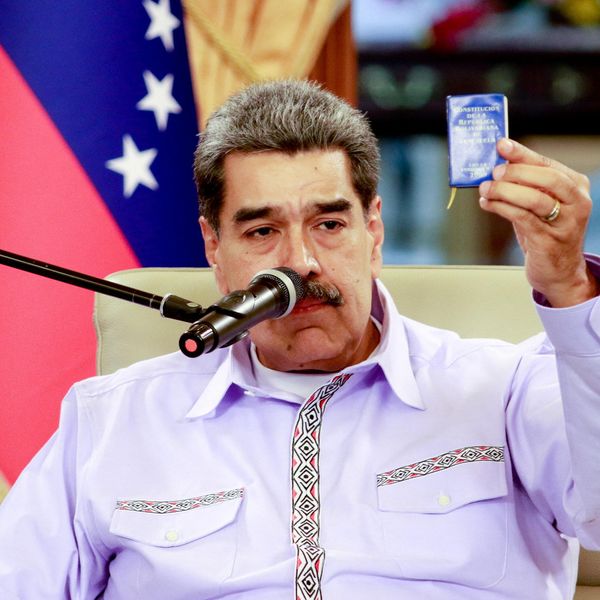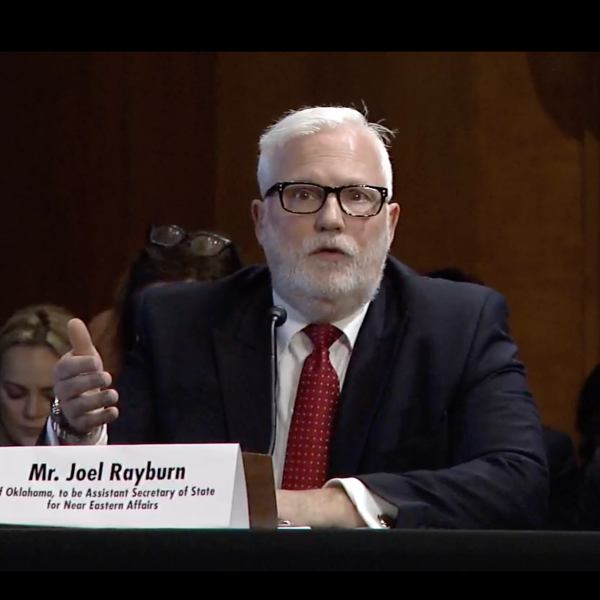Since October, Egypt has joined most of the international community in calling for a ceasefire in Gaza. With Egypt being the only Arab country to border Gaza, Cairo’s stakes are high. The longer Israel’s war on the besieged enclave continues, the threats to Egypt’s economy, national security, and political stability will become more serious.
Located along the Gaza-Egypt border is Rafah, a 25-square-mile city that until recently was home to 300,000 Palestinians. Now approximately 1.4 million Palestinians are sheltering in Rafah because of the Israeli military’s wanton destruction of Gaza City, Khan Younis, and other parts of the Strip. Having asserted that four Hamas battalions are now in Rafah, Israel’s Prime Minister Benjamin Netanyahu has declared that deploying Israeli forces to this Palestinian city is necessary for his country to defeat Hamas amid this war. As of writing, Israel’s military is preparing to launch a campaign for Rafah.
Officials in Cairo fear that Israeli military operations in Rafah could result in a large number of Palestinians entering the Sinai. “An Israeli offensive on Rafah would lead to an unspeakable humanitarian catastrophe and grave tensions with Egypt,” said European Union foreign policy chief Josep Borrell on February 10.
Not only could such a scenario fuel massive amounts of friction between Cairo and Tel Aviv, but it could also severely heighten tensions between the Egyptian public and President Abdel Fatah el-Sisi’s government. It’s easy to imagine a mass expulsion of Palestinians from Gaza into Egypt’s Sinai Peninsula, which would amount to essentially a “Nakba 2.0,” triggering widespread unrest in Egypt if the government in Cairo is widely seen by Egyptians as playing a role in permitting, if not facilitating, such an ethnic cleansing of Palestinians from Gaza. Along with economic considerations, this is one of the main reasons why Cairo has articulated that Israel depopulating Gaza of Palestinians and forcing them into Egypt is a red line that Tel Aviv must not cross.
“The biggest concern for Cairo is related to the fate of the [Palestinians in Gaza] forcibly evacuated by the Israelis and who might find a ‘safe haven’ in Sinai. An uncontrolled influx of Palestinians into the [Sinai] Peninsula would be an enormous burden on Egypt, which would have to manage a problematic situation from a political and security point of view, as well as having to justify internally to its own public opinion an imposition that came from outside,” Giuseppe Dentice, head of the Middle East and North Africa Desk at the Italian Center for International Studies, told RS.
“It is no coincidence that Cairo has reinforced the border with Gaza, closed the Rafah crossing, and warned Israel that any unilateral action involving a forced exodus of the Strip’s inhabitants to Egyptian territory could jeopardize not only bilateral relations, but the preconditions for peace and stability guaranteed in the [Camp David Accords],” added Dentice.
On February 15, Maxar Technologies, a Colorado-headquartered space technology company, captured satellite images showing Egypt’s construction of a wall roughly two miles west of the Egypt-Gaza border. The following day, the London-based Sinai Foundation for Human Rights said that this construction “is intended to create a high-security gated and isolated area near the borders with the Gaza Strip, in preparation for the reception of Palestinian refugees in the case of [a] mass exodus.”
What might happen to the Camp David Accords?
On February 11, two Egyptian officials and one Western diplomat told the Associated Press that Cairo might suspend the 1979 Camp David Accords if Israeli troops wage an incursion into Rafah. A day later, Egyptian Foreign Minister Sameh Shoukry denied such reports about his government’s plans to freeze the peace treaty with Israel, yet he emphasized that Egypt’s continued adherence to the 1979 deal would depend on Tel Aviv reciprocating.
Alarming to Egyptian officials were Netanyahu’s statements late last year about the Israeli military taking control of the Philadelphi Corridor (a nine-mile-long demilitarized buffer zone between Gaza and Egypt which was established in accordance with Egypt and Israel’s peace treaty) because such a move on Israel’s part would be a breach of the Camp David Accords.
Are Egyptian officials serious about possibly freezing the historic peace deal? Or does such talk amount to empty threats issued for political purposes at home, as well as pursuing certain Egyptian aims vis-à-vis Washington and Tel Aviv? Mouin Rabbani, a political analyst and co-editor of Jadaliyya, told RS that if these statements from anonymous Egyptian officials are geared toward a domestic audience but Cairo doesn’t follow through, Sisi’s government could have a “potentially serious problem on its hands.”
Ahmed Aboudouh, an associate fellow with the Chatham House and a nonresident fellow with the Atlantic Council, doubts that Egypt would go as far as suspending the Camp David Accords. “In the end, Egypt is unlikely to take the first step to tear the treaty up unilaterally,” he said.
But what Egypt is doing is embracing “discursive strategic posturing” whereby Cairo uses “rhetorical escalation” and directs messages at three audiences, Aboudouh told RS. First is the domestic audience to say that Cairo is standing up for Egypt’s core security interests as well as the Palestinian cause. The second is Washington to relay the Egyptian government’s anger at the Biden administration for not stopping Israeli actions that threaten to displace Palestinians into the Sinai. Third is to Netanyahu, generals in the Israeli Defense Forces, and the Israeli intelligence community.
Gordon Gray, a former U.S. Ambassador to Tunisia, also discounts recent suggestions that Cairo would suspend its peace treaty with Israel for three main reasons. “First, Egypt does not seek military confrontation — even an inadvertent one — with Israel. Second, Egypt does not want to risk losing U.S. military assistance ($1.3 billion annually), which was granted as a direct result of the Camp David Accords. Finally, while Egypt abhors the Israeli military campaign in Gaza, it shares Israel’s views about the threat Hamas poses,” said Gray in an interview with RS.
What would come from Egypt freezing the treaty?
Despite many experts believing that Egypt would not freeze the Camp David Accords, that potential scenario should be considered. There are important questions to raise about what it could lead to in terms of region-wide ramifications, as well as Cairo’s relationships with Western capitals. But it’s difficult to predict how events would unfold if Egypt took that step because there would be so many unknown variables in play.
Egypt could act in different ways after suspending the peace treaty with Israel. Rabbani asked, “Would it simply declare the peace treaty suspended and leave it at that or would it stop implementing provisions of that treaty?”
Regardless, any freezing of the Camp David Accords by Egypt would inevitably bring a layer of instability to Egyptian-Israeli relations never seen since Jimmy Carter’s administration, which — with help from Iran, Morocco, and Romania — brought Egypt’s then-President Anwar Sadat and Israel’s then-Prime Minister Menachim Begin together in northern Maryland’s Catoctin Mountains to sign the peace treaty in September 1978. The response from Washington would likely be extreme, particularly given how central Egyptian-Israeli peace has been to U.S. foreign policy agendas in the Middle East for almost half a century while surviving a host of regional crises, including Israel’s invasion of Lebanon in 1982 and all the previous Gaza wars.
“The U.S. is certain to act true to form and retaliate against Egypt without holding Israel in any way accountable for producing this crisis, and Washington may well cease foreign assistance to Egypt, which is a direct function of its peace treaty with Israel. The EU will probably announce it is launching an investigation of the Egyptian school curriculum or some other nonsensical initiative,” Rabbani told RS.
Irrespective of how Egypt approaches its relationship with Israel, the fact that officials in Cairo are suggesting a potential freeze of the Camp David Accords speaks volumes about the Gaza war’s impact on Israel’s diplomatic standing in the Arab world.
With the probability of more Arab countries joining the Abraham Accords in the foreseeable future having essentially dropped to zero, the pressing question is not which Arab government might be next to normalize with Tel Aviv. The focus has shifted to questions about how Arab countries already in the normalization camp, such as Egypt, will manage their formalized relationships with Israel at a time in which Israeli behavior in Gaza is widely seen across the Arab-Islamic world as genocidal.
- What if the US didn't help Israel in the Yom Kippur War? ›
- Why does Egypt fear evacuating Gaza? ›
- Why Egypt can't and won't open the floodgates from Gaza | Responsible Statecraft ›
- Israel testing cold peace with Egypt | Responsible Statecraft ›
- Egypt's energy gamble has left it beholden to Israel | Responsible Statecraft ›
